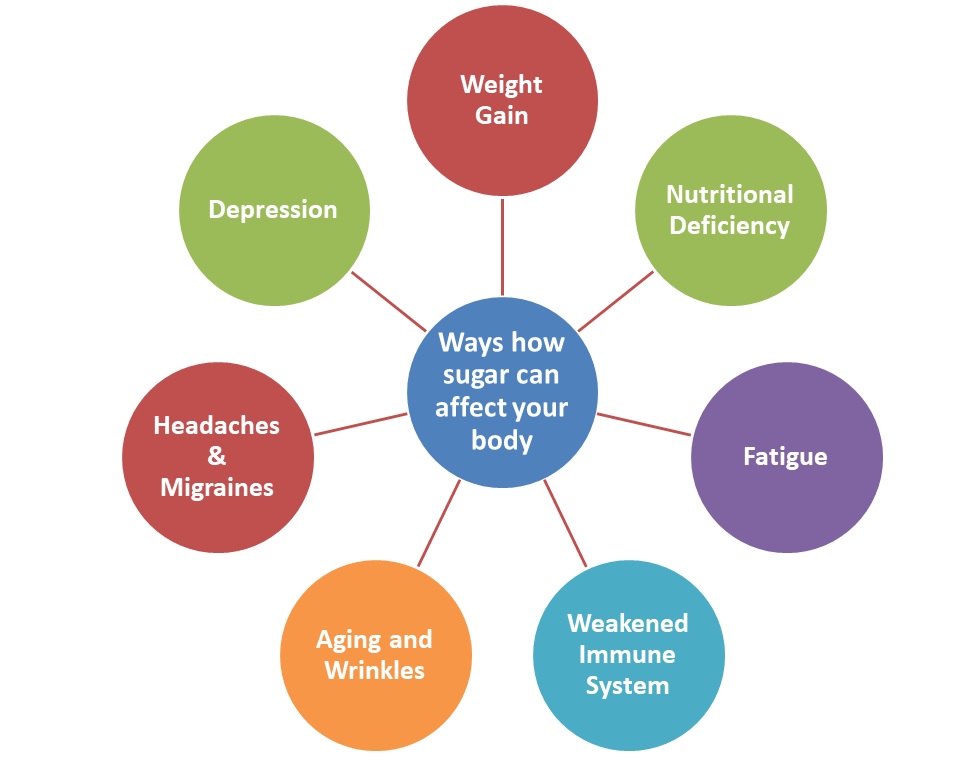Sugar added to food has little nutritional value, does not make people feel full and is dangerous beyond merely the number of calories it contains. Sugar consumption has led to a 25 percent increase in the Type II Diabetes among the obese and normal population. While the obese cultivate Diabetes due to sedentary lifestyle issues, normal person get affected due to genetics and the increased sugar intake.
Dependency on processed foods which have hidden sugar content is also to be blamed. Changing food habits due to unhealthy lifestyle has made processed foods and carbonated drinks as a part of the daily menu. Most people do not have the idea about the amount of sugar being consumed by them in aady. Due to this, the triple combination of ailments which are — obesity, Diabetes and heart disease occurs at a younger age among the population in the country.
How sugar reacts with the brain?
Sugar leads to dopamine release in the nucleus accumbens – an area associated with motivation, novelty, and reward. Hence, intermittent sugar consumption affects the brain much like certain drugs.
Harmful effects: Glucose, the carbohydrate molecule of sugar, can be positively put to use by every single organ in the body. Furthermore, if your body doesn’t produce enough of it, it’ll start producingit’s own.
On the other hand, fructose is the fatty molecule of sugar and can only be processed in the liver. If the liver receives too much fructose, it becomes overloaded. When it can’t take any more, the fructose (metabolised as fat) leaks into the body and the following complications can arise:
Consuming foods and beverages high in sugar or refined carbohydrates may reduce your body’s ability to ward off diseases. When the immune system is compromised, one is more likely to get sick
- Fatty liver
- Insulin resistance
- Hypertension
- Weight gain
if the condition deteriorates, the end result can include:
- Heart Disease
- Cancer
- Dementia
- Diabetes
- Obesity
Ways How Sugar Can Affect Your Body

- Weight Gain: Sugar can lead to weight gain because our cells do not require large amounts at one time, and the extra sugar is stored as fat. Sugar also slows down your metabolism.
- Nutritional Deficiency: Refined sugar lacks vitamins, minerals and fiber, therefore, making our bodies work even harder to digest it. In order to absorb sugar completely, the body have to deplete minerals and enzymes From its own store house.
- Fatigue: Because sugar takes our blood sugar on a roller coaster ride, first being pushed up high and then brought back down really low, we experience what we all know as a ‘sugar crash’.
- Weakened Immune System: Consuming foods and beverages high in sugar or refined carbohydrates may be reducing your body’s ability to ward off disease. When the immune system is compromised, one are more likely to get sick.
- Aging and Wrinkles: Sugar can lead to premature aging by damaging collagen and elastin.
- Headaches & Migraines: Sugar consumption can play a role in headaches and migraines.
- Depression: Excessive sugar un lead to depression. Additionally, we may feel comforted right before and right after eating a cupcake, and we may anticipate it lifting our moods, however, this typically will be very temporary. Eating this sweet treat really didn’t get to the root of our stress or depression, so then we are back to square one.




